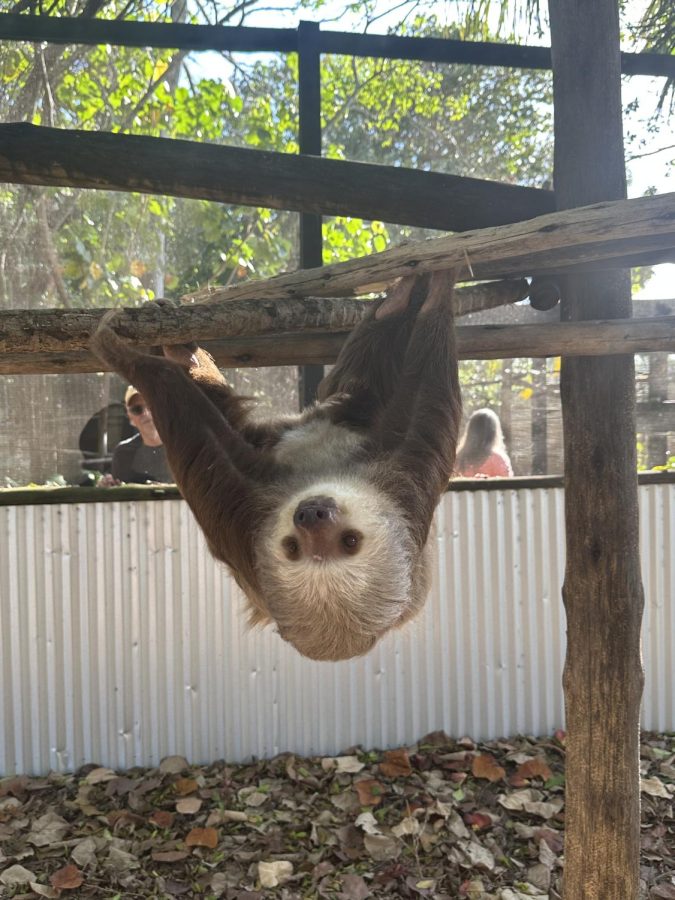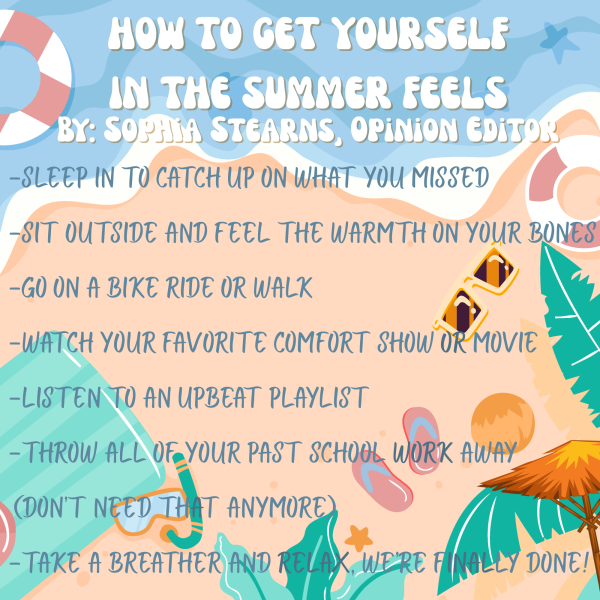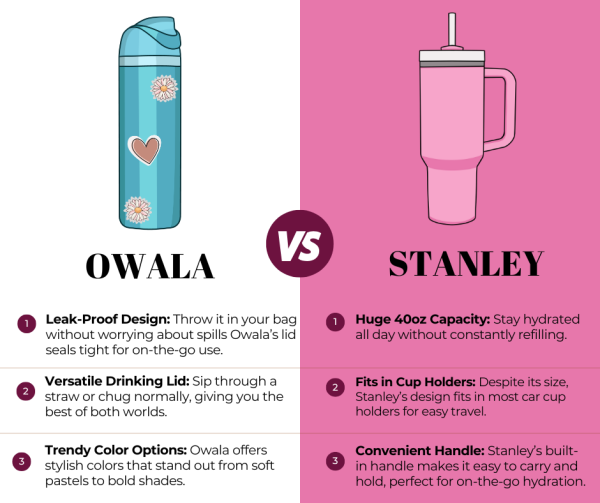Should Zoos Be Shut Down?
Sloth at the Palm Beach Zoo
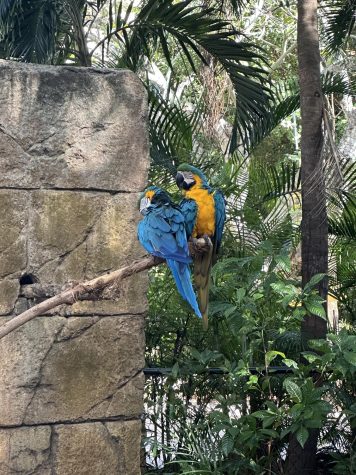
Pro: Taryn Saroken
How would you feel if you were put behind bars for doing nothing wrong? You probably wouldn’t like it. So why do people support doing it to animals? Zoos are not only a danger for the animals themselves but also for the individuals who visit them.
To start off, when an animal from the wild is captured and contained in a zoo, they experience a lot of trauma. Many zoo workers will abuse animals, sometimes they may abuse the animals on accident, however, some zookeepers will purposely abuse animals to enforce a certain behavior. It is common for employees to chain down animals, hit them, and starve them. This mistreatment leads to physical and mental harm for the animal. Many animals suffer from chronic stress, issues managing stress, and even depression.
In addition to the mental distress zoos put on animals, zoo habitats also alter the animals’ natural instincts. When animals are deprived of their natural environment, many of their survival skills are altered. For example, animals will not be able to practice their hunting skills in a small habitat with no other wildlife; the isolation will cause the animals to lose mating skills, and the lack of space in their habitat will limit the animals’ ways to entertain themselves.
Many people may argue that zoos are vital to helping injured animals and animals on the verge of extinction. This is true, but it comes at major costs. When animals are captured from nature, the zoos may help them live longer, but it causes them to live long but lonely lives. This cost leaves the question; is it worth it?
The last point I would like to acknowledge is the morality of zoos. If the situation of zoos was affecting humans instead of animals, society would be much more eager to shut down all zoos. With this in mind, why do individuals’ outlooks change when we are talking about animals? The answer is it shouldn’t. Animals are living, breathing, and feel emotions the same as humans. Yet they are left much more helpless than people.
In regards to the people that think humans are superior to animals and can treat them however they want, this point is for you. When the animals in zoos are traumatized and deprived of their natural hunting habitat, it is common for animals to take their anger out on humans. In the past, this has resulted in animals injuring and even killing humans. In addition to physical danger, animals also can carry a variety of germs that are harmful to humans. Coming in close contact with any animal without proper protection could expose you to E. coli, salmonella, tuberculosis, and even more.
In conclusion, zoos must be shut down because the animals’ living conditions are immoral and can cause trauma, distress, and loneliness. Additionally, close proximity to the zoo animals endangers zoo-goers with many harmful germs.
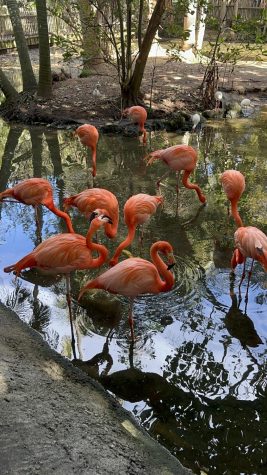
Con: Eleen Vaupel
The word “zoo” comes from the word zoology, the scientific study of animal behavior and biology. Using this definition, it is apparent that zoos were not built to cage up animals, but to preserve biodiversity and create an environment that nourishes education. Zoos are significant for preserving animal conservation in many ways that can be underestimated at first glance.
Endangered species are brought into a safe environment where they can receive special treatment from trained professionals and researchers within a zoo. These endangered species are given a habitat where they are protected from poachers, habitat loss, predators, and starvation. Being enclosed, these sacred animals are behind multiple layers of protection from all of these outside factors that are limiting their population. A report this year by World Association and Aquariums News revealed that there are up to 691 different endangered species that are being protected by zoos. These 691 engaged animals are in dire need of a place that can sustain their species with the right conditions, environment, and resources to grow and strengthen their population. Luckily for these endangered species, a zoo does just that and more.
This doesn’t only apply to endangered species: every animal brought into the care of a zoo is given this protection and care. Even species outside the endangered list are supplied with more food, water, shelter, and resources than they could ever find in the wild without the support of a zoo. Animals in the wild are exposed to far more danger than those under the watchful eye of humans, which seems to be the only challenge an animal has to overcome whilst in a zoo. The life expectancy of each individual species in a zoo is vastly longer than that of an animal living on its own in the wild. Zoos are not only expanding each individual’s life span through safety but also through medical attention. Residing in a zoo means that the animal has instant access to medicine and a veterinarian on hand. Treatment teams can create any care plan depending on the animal, and the treatment it needs. Zoos maintain care processes of all their animals to ensure they are healthy. If a species needs screenings, quarantine, procedures, parasite removal, or a diagnosis, they can find that attention within a zoo, not out in the wild.
It’s also crucial to acknowledge the other factors of whom zoos are benefiting, not just the animals. For example, the economy, scientists, students, children, and everyday visitors. Zoos have a major educational aspect, not just entertainment. Receiving the full zoo experience entails children and families to learn about different animals and their ecosystems, educating people about the species we coexist with on this planet. Whether you’re a student, retiree, parent, or academic, you can always learn something new by going to a zoo.
Zoos also expand past gaining new facts and knowledge about other organisms, but to a scientific level. Animals kept in zoos are studied by colleges, scientists, and researchers for how we can improve our planet. The opportunities of having a protected and healthy animal in modern education are unlimited. Overall, the generosity of zoos keeps giving. Zoos provide people with jobs, create tourism opportunities, and directly link peoples’ passions, conservation and education, with the economy. Next time you visit a zoo, remember that not only are the animals benefiting but so are you.

